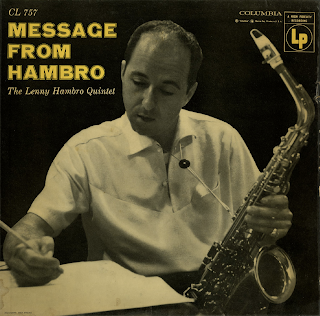Waltz Of The Flowers
Concert With A Beat
David Rose and His Orchestra
Selections specially adapted and arranged by David Rose
MGM Records E3852
1960
From the back cover: Strings that soar like spears of sunlight, and stipple the air with the sound of pleasure... deep-throated horns that curl around the end of a supple phrase... the melancholy air of an oboe singing darkly... the joyous sweep of trombones and trumpets... these are the hallmarks of the music of David Rose, pianist, composer, arranger, symphony conductor, a man of music to whom instrumental colors are as personal as the sound of voices.
But, there is another guarantor of pleasure in Rose's music that binds together the familiar range – and subtle surprise – of his arrangements. Whether swift or lingering, his music has a deeply-rooted pulse, an inner momentum that is a profound part of the man, his time, and his place. This program of great classical melodies provides an unusual showcase for the Rose beat, the mysterious rhythmic impulse that adds something special to the lilt of syncopation, perhaps "the sound of (a) Rose."
The pervading beat of American popular music was first shaped on a thousand keyboards trembling under the driving fingers of itinerant ragtime's... than it was clothed with strange power by the small jazz bands that groped their way toward swing. David Rose was there, briefly, during this apprenticeship as an American musician... there in the moil and testing of one-nighters and record dates before the music-minded public became swing conscious.
"Pno. arr." – pianist and arranger: the careful notation can be searched out of the ocean of data compiled by dedicated jazz discographers. With Frankie Trumbauer in Chicago... with Jack Teagarden a couple years later. David Rose: Pno., arr.
The David Rose?
The present program of arrangements of concert masterpieces, all bearing the personal stamp of Rose's rhythm, provide an emphatic answer to the question. But... fair warning... this is not a trick display that substitutes cleverness for musicianship. On the contrary, here is a mature musician art the top of his bent, a master of orchestral timbre, a man with a beat that arrives logically from the pulse of the music itself.
Then there is that impossible-to-define factor that the public sensed in David Rose the moment it took his music to heart – that something called taste. In his treatment of melodies of Tchaikovsky, Brahms, Franck and Greig, he has kept a tight rein. He has selected some outstanding jazz instrumentalists to bring a new beat, and new colors to beloved music.
The pulse of jazz in there – but the touch is light.
The David Rose? The same indeed: once a swinger, always a swinger (at least, at heart – and that's where the fun of great music lurks.) Maestro, on with the Concerts!
Romeo And Juliet (Fantasy-Overture) - Tchaikovsky - Piano Soloist: Bobby Hammack
Serenade For Strings (Op. 48) - Tchaikovsky - Solo by Bob Cooper
Waltz Of The Flower (Nutcracker Suite) - Tenor Sax Solo by Bob Cooper
Symphony In D Minor - Vibraharp Solo by Dale Anderson
Swan Lake (Op. 20) - Tchaikovsky - Alto Sax Solo by Ronnie Long
Symphony No. 6 In B Minor - "Pathétique" - Tchaikovsky - Piano Soloist: Bobby Hammack
Symphony No. 1 In B-Flat Minor - Finale - Brahms - Trombone Solo by Murray McEachern
Piano Concerto No. 1 In B-Flat Minor - Tchaikovsky - Piano Soloist: Bobby Hammack
None But The Lonely Heart (Op. 6; No. 6) - Tchaikovsky
Anitra's Dance (Peer Gynt Suite) - Greig - Guitar Solo by Bobby Bain
String Quartette In D Major - Tchaikovsky - Trombone Solo by Murray McEachern























